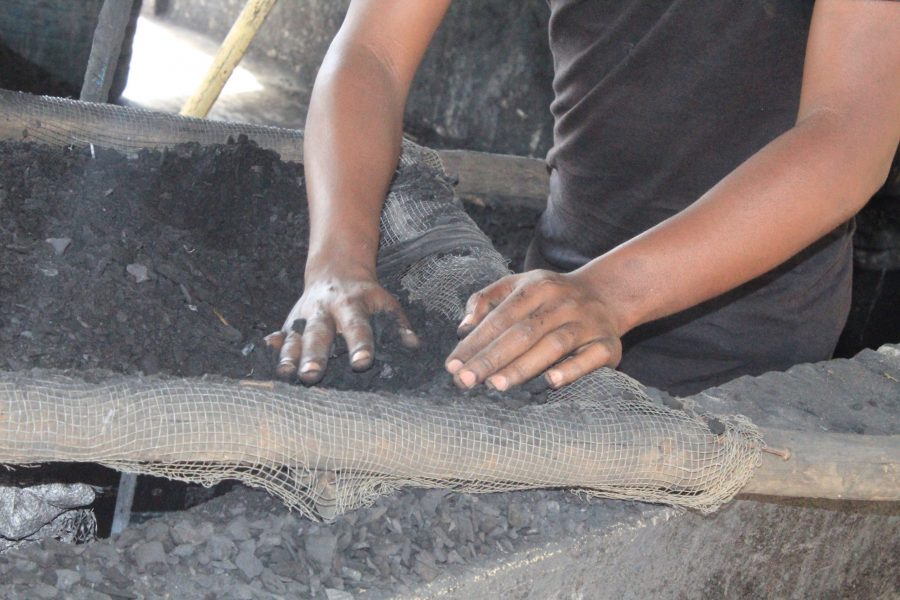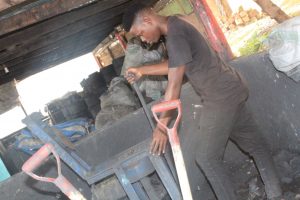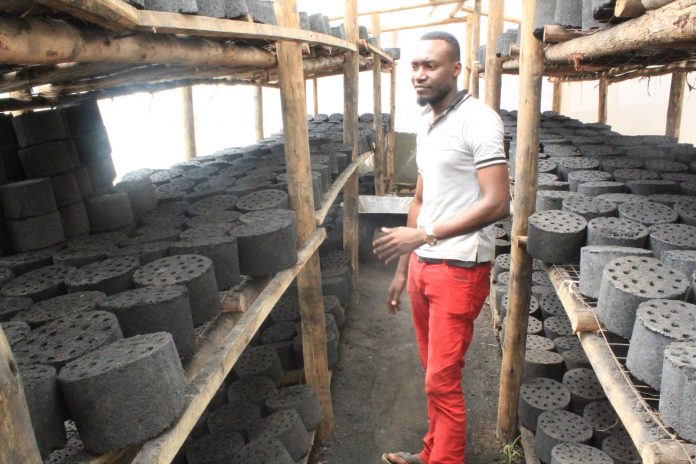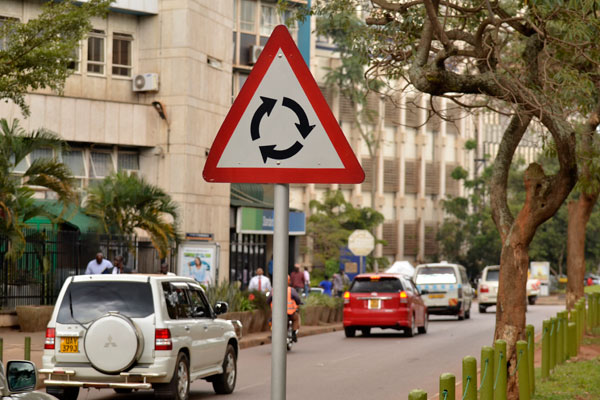Meet Calvin Matovu, a twenty-five-year old graduate from Makerere University who recycles wastes and rubbish into charcoal.
After attaining a Bachelor’s degree in Environmental science in 2013, Calvin searched for a job in vain. His life started becoming difficult as he had no source of income and he found it senseless to finish university and sit at idly at home.
In the struggle to fight unemployment, Calvin harnessed the idea of collecting wastes and rubbish from the community with his friends, to make some money.
“I asked myself, all this waste we collect and KCCA burns, can’t we reproduce a product out of it?’ Basing on my knowledge from campus, I came up with the idea of recycling wastes into charcoal.” Says Calvin at his factory in Erisa zone, Kyebando.
He set his plan in motion by gathering jobless youths in his community to create employment for themselves. Calvin and his team of seven started reusing wastes, especially organic wastes from agricultural products for example peelings from matooke. These are mixed with ash, clay, carbon, and water to make a final product.
“At first we did not have a market because people were already using charcoal from firewood with no clue about charcoal from wastes.” He says.
The idea of reusing garbage to make charcoal seems so unrealistic until he breaks down the process through which waste can be made useful and environment friendly.
“The raw materials include banana peelings, paper, clay, cow dung, cassava flour basing on your income level for example one can use clay or cow dung or cassava flour. The machines used are a charring drum, crushing machine, and a stick briquette machine. Peelings are collected and dried then sorted and grinded. Then they are burnt and put into the charring drum. The binder, which can be either cassava porridge, clay or cow dung is added to the wastes mix and the mixture is then poured into the briquette machine. the last step is to dry the briquettes to produce charcoal. This is done in the drying rack.
 Calvin’s workmate sieving the raw material in the workshop
Calvin’s workmate sieving the raw material in the workshop
Calvin and his team have faced a number of challenges but this has not stopped them from going further.
“In the beginning, we used our hands to mould the charcoal which was very tiresome and it left our hands spoilt with dead skin in the palms. Our quality also wasn’t that good. The market too was very low but we never gave up.”
“Use what surrounds you” is a common saying that we often do not give attention too, but instead, we keep asking our leaders for help yet what’s surrounds us can be very useful in our daily life.
Basic principles of Physics state that “Effort + Load = Work done.” Calvin’s hard work and desire to see his brilliant idea boom led him to overcome all the challenges that he and his team met. After months of several dynamics, critics and mental exhaustion, the season ended and he harvested fruits from his tree. Schools and some small companies started making orders for his charcoal. He has since received support from KCCA in form of a manual machine that ended the hands era.





















